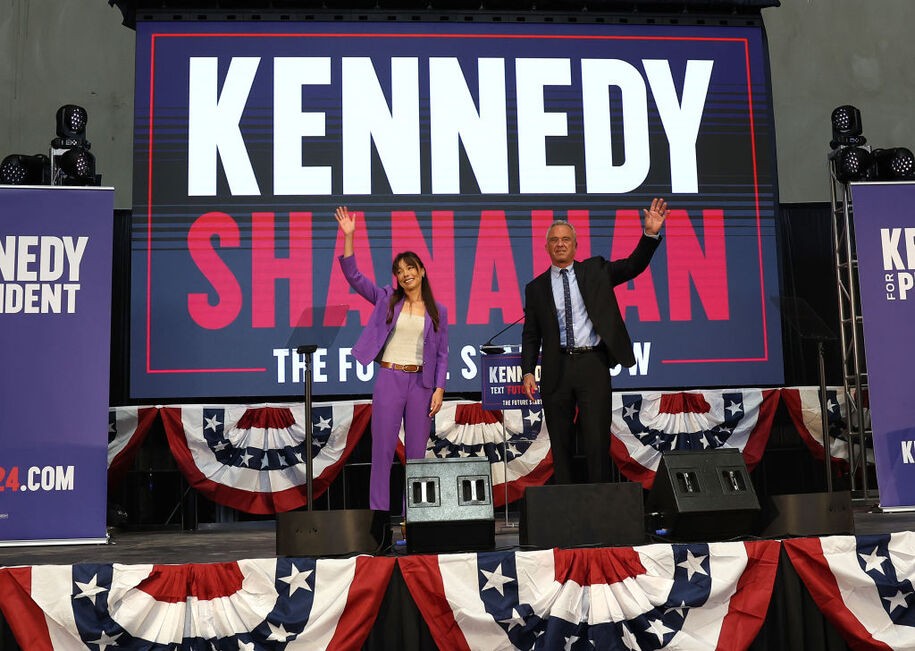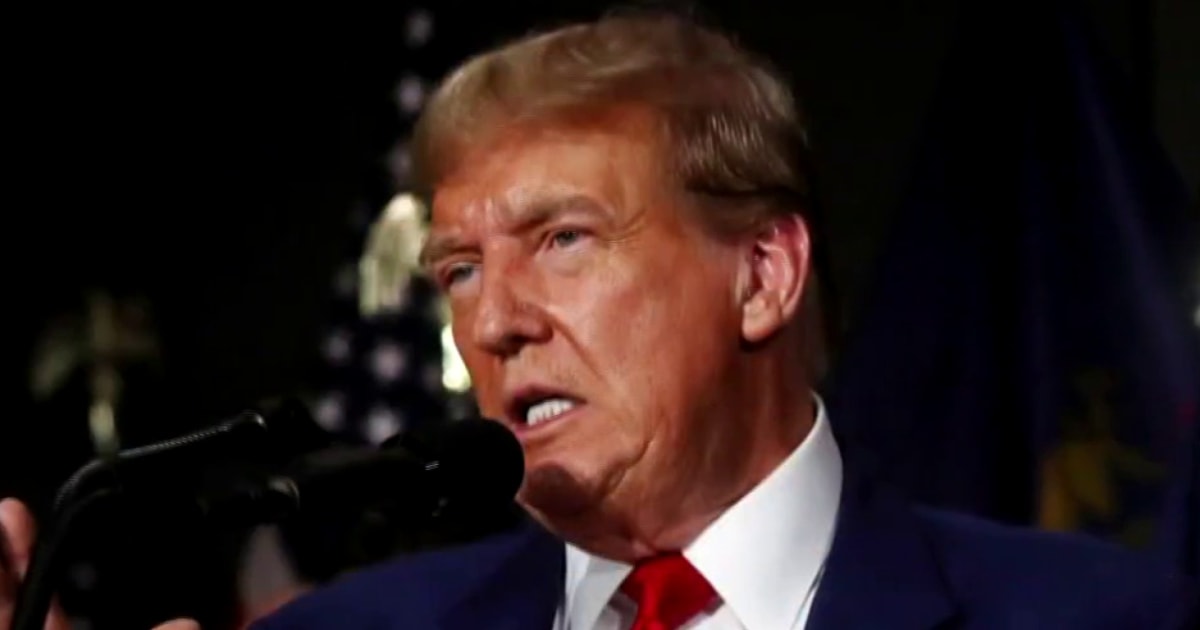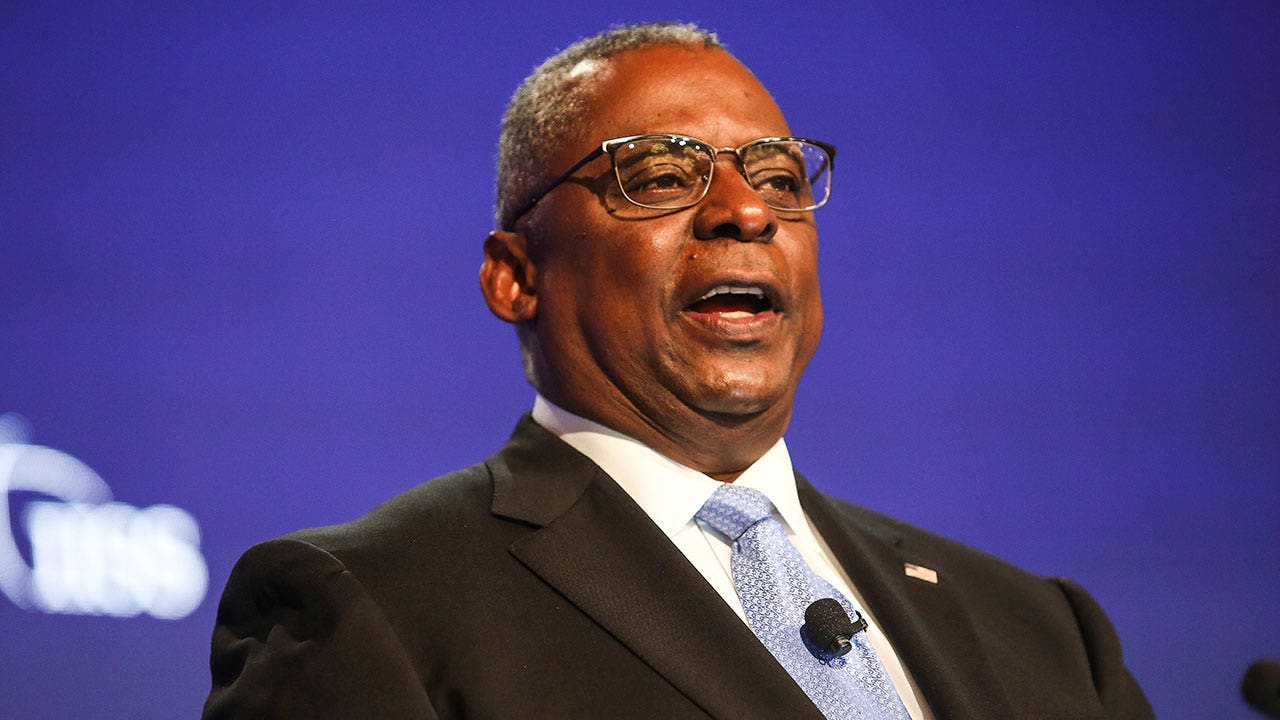The debate terms agreed to by the campaigns of President Joe Biden and Donald Trump still include a wild card: whether independent candidate Robert F. Kennedy Jr. will participate.
Whether Kennedy manages to qualify is one question. He needs to garner 15% support in four high-quality national polls and make the ballot in enough states to conceivably get 270 electoral votes. This week, Kennedy’s running mate, Nicole Shanahan, pledged to pour $8 million into the campaign’s ballot access efforts.
To date, Kennedy has confirmed ballot access in just three states—Michigan, Utah, and Oklahoma—worth 28 electoral votes and claims to have access in nearly a dozen other states worth 131 electoral votes.
But regardless of whether Kennedy meets the criteria, there’s no world in which he has any chance of winning the presidency. In fact, his running mate admitted they have no path and instead hope to influence “policy.”
“It would be great if we could take office come, you know, November after the election, but we understand we’re up against a lot,” Shananhan said in an interview with YouTube commentator Luke Gromen. “So we’re just taking every opportunity every day to help shape policy through the voice of candidacy.”
Kennedy may not be a serious candidate for president, but he is a serious threat to the presidency. His presence on the ballot in any of the hotly contested swing states could easily throw the election to Trump, who is counting on the help of third-party candidates to triumph in November. And Trump poses a clear and present danger to the republic.
It’s obvious which campaign wants Kennedy on the ballot by their positions on his potential participation in the debates. The Biden campaign has stipulated that the president wants to go mano a mano with Trump, while Trump said he would happily have RFK Jr. participate.
And the more we learn about who Kennedy will likely hurt most at the ballot box, the clearer it is that Trump needs just such a spoiler to beat Biden. While some national polling has suggested Kennedy will siphon away more votes from Trump, state polling is much murkier and, on balance, appears to hurt Biden more in the battlegrounds that will decide the election.
A look at polling from the blue wall states of Michigan, Pennsylvania, and Wisconsin—where the two candidates are running closest—demonstrates the peril for Biden.
In Wisconsin, for instance, two recent high-quality surveys show the addition of Kennedy and third-party candidates Jill Stein and Cornel West cuts into Biden’s lead over Trump.
Quinnipiac University, registered voters
-
Head to head: Biden +6, 50% to 44%
-
Third parties added: Biden +1, 40% to 39% (Kennedy 12%, Stein 4%, West 1%)
New York Times/Siena, registered voters
-
Head to head: Biden +2, 47% to 45%
-
Third parties added: Biden/Trump even at 38% (Kennedy 8%, Stein 0%, West 0%)
In Michigan, the addition of third parties in two high-quality polls either helped Biden or had no impact on his lead.
CBS News/YouGov, likely voters
-
Head to head: Biden +2, 51% to 49%
-
Third parties added: Biden +2, 45% to 43% (Kennedy 9%, Stein 3%)
New York Times/Siena, likely voters
-
Head to head: Biden +1, 47% to 46%
-
Third parties added: Biden +3, 42% to 39% (Kennedy 7%, Stein 1%, West 0%)
In Pennsylvania, the addition of third-party candidates helped Trump gain several points in two high-quality polls, giving him an edge over Biden in one survey and padding his lead slightly in the other.
Fox News/Beacon Research/Shaw & Company, registered voters
-
Head to head: Biden/Trump even at 48%
-
Third parties added: Biden -2, 42% to 44% (Kennedy 8%, Stein 2%, West 1%)
New York Times/Siena, registered voters
-
Head to head: Biden -3, 45% to 48%
-
Third parties added: Biden -4, 37% to 41% (Kennedy 10%, Stein, 1%, West 0%)
To some extent, the results are mixed, but any drop-off in those states is a problem for Biden, who eked out a 2020 victory in all three by fewer than 3 points (Michigan 2.7%, Pennsylvania 1.2%, and Wisconsin .7%).
Kennedy’s impact on the race is also tough to measure without a doubt. The Times and Ipsos conducted an experiment in which the outlets switched the order of when they asked the head to head question versus adding in the third-party options. When the head to head was surveyed first, Kennedy polled much higher in the third-party inclusive question that came next, at 13%. But when voters were asked about the entire field first (including third party options) and the head to head second, Kennedy polled at 7%.
The theory posited in the piece to explain the difference was that voters were frustrated by being limited to two options when the head to head was asked first, so they lodged a protest response when given the entire field to choose from. That impulse was diminished when voters were shown the entire field right off the bat.
Times election analyst Nate Cohn also noted that, in the outlet’s most recent battleground state polling, Kennedy drew 8% of Biden 2020 supporters compared to 6% of Trump 2020 supporters, even though more of Kennedy’s supporters today say they would now back Trump.
And here’s the real kicker: Kennedy took 8% of voters who are backing Democratic candidates for Senate in four swing states (Arizona, Nevada, Pennsylvania, and Wisconsin) compared with drawing 6% of those who support Republican candidates for Senate in those states. It’s worth noting that Biden is also significantly underperforming compared to Democratic Senate candidates in the Times/Siena polling.
The reality is, third-party candidates managing to draw even 1% of the vote away from Biden could swing the election in Trump’s favor. Trump’s path to 270 is boosted by any third party that manages to pick up a point or two because he has a lower ceiling than Biden, who won 2020 with a 51% majority of the vote. Trump didn’t break 47% in either 2016 or 2020.
“It’s very simple,” Democratic strategist Stephanie Schriock told Greg Sargent, “Any third party right now is there to divide the anti-Trump coalition—a coalition that we need for President Biden and Vice President Harris to get reelected.”
Campaign Action


